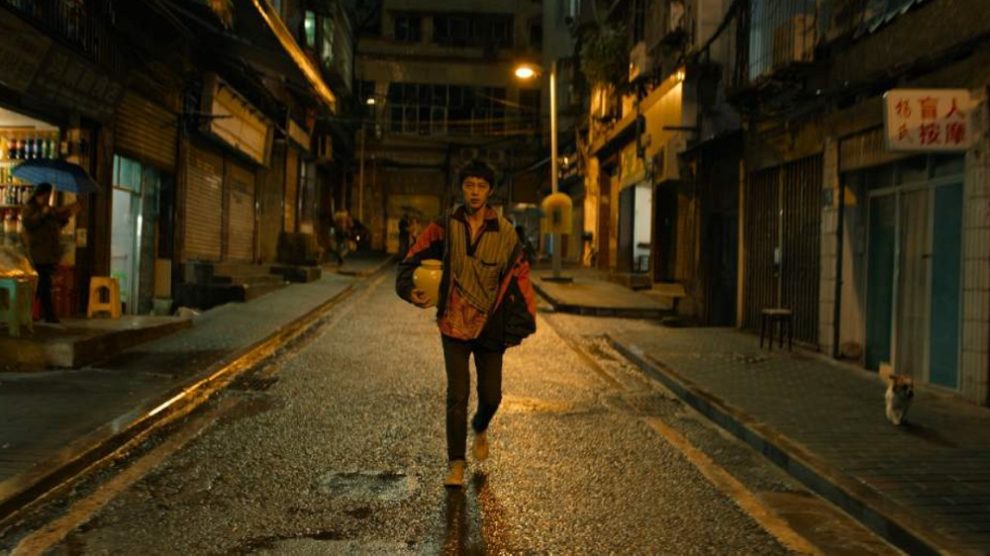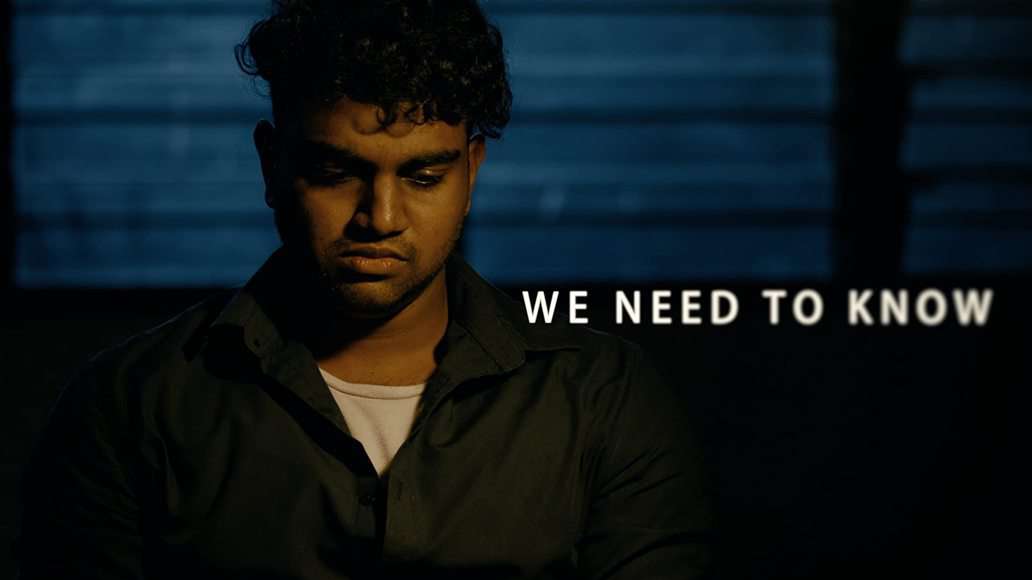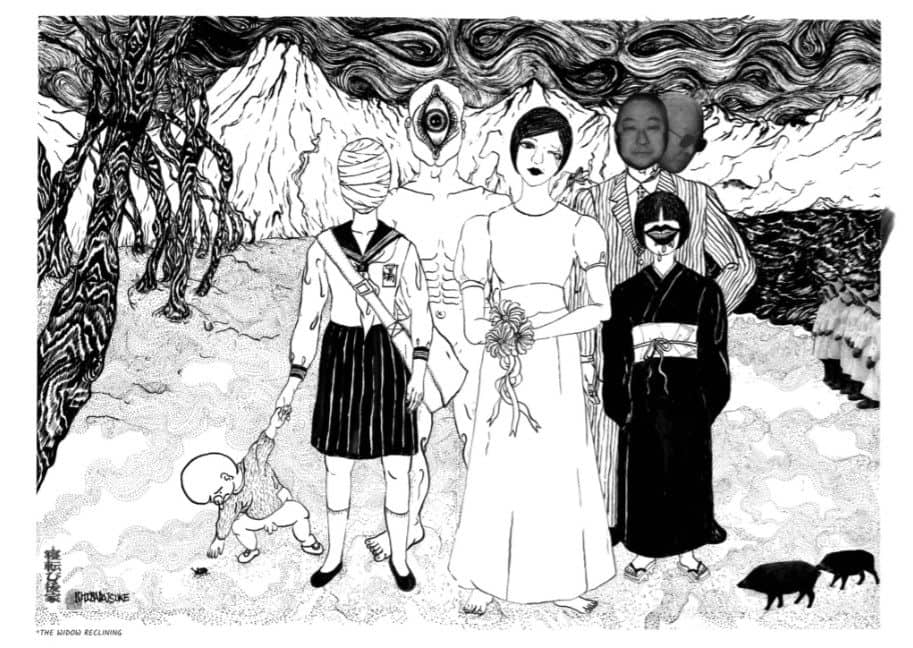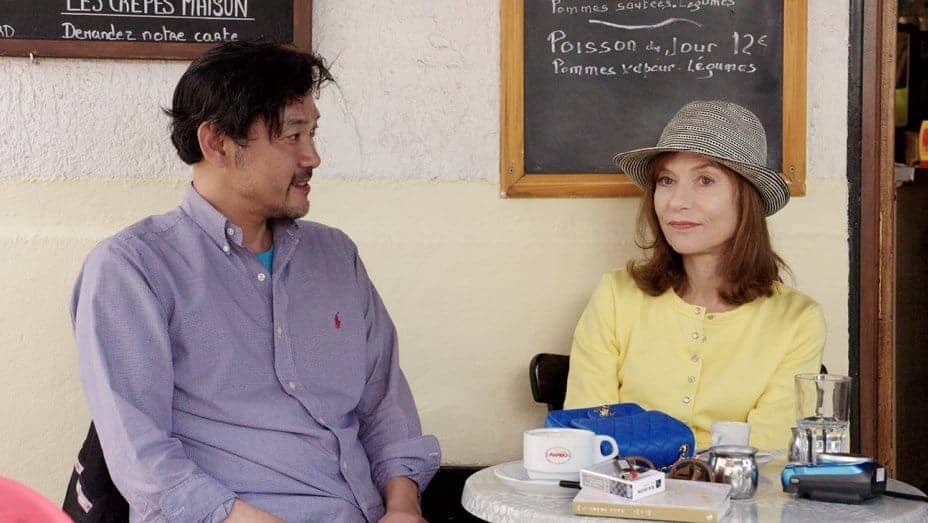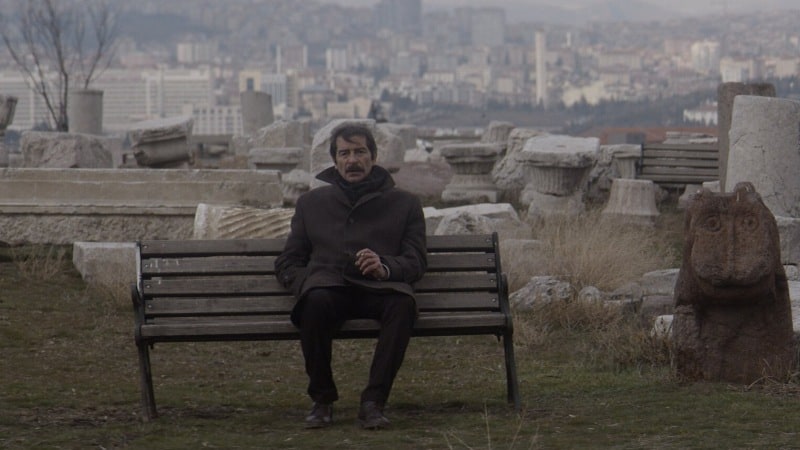Na Jiazuo's debut feature-length film “Streetwise” is dedicated to all souls in need of comfort, none of which any of his protagonists ever gets. Dysfunctional families and the lack of perspective in Zhenwu, (the Sichuan-Chongqing region), are central to the story about 21-year-old debt-collector Dong Zi, a youth who doesn't feel good about what he is doing, but he does it anyway for one single reason (or so he claims).
Streetwise is screening at the 62nd Thessaloniki International Film Festival

One could call “Streetwise” anything but a crime film, despite of more than a couple of murky things going on in its not-so-easy-to-comprehend net of ideas. It is also not a type of social commentary, despite of its story being set against the backdrop of 2004, a year that saw big migrations from rural China to megacities. Zhenwu looks ghastly empty at night, with constant drizzle hanging over it.
At daylight, this picture changes a bit and the streets become livelier with people who go on with their business of selling and buying, despite of new circumstances. Others, a bit less ‘common' folks do not mind their own business as all, with their ‘professional' tasks looking a tad different. And those in the film happen to be debt collectors Dong Zi (Li Jiuxiao) – the main hero of the story, and his more experienced partner in crime Xu Jun (Yu Ailei), a man who's carelessly pocketing way too much money under the pretext that the debtors ‘are gone'. There is also a local mobster (Sha Baoliang) who kind of really hates theft, especially when it's his money someone else puts aside. But he can sing, that's for sure (Baoliang is a famous pop star in China)
.
“Streetwise” is undeniably influenced by the photography of its cinematographer Li Jianeng and his interesting play with green and yellow hues that contrast each other strongly, secure a specific type of atmosphere. One represents the dusty, dowdy reality and the other – hope. But there is another colour leaning over the screen, and it's not the type of grey that Li Jianeng can do something about. It is in the script that we find the biggest source of darkness.
Relationships depicted in “Streetwise” can barely be called normative, but especially Dong Zi is condemned to strange only. His father (played by fantastic Qi Zhi) is abysmal and aggressive, a thug his own son describes as unabashed: “Ever since he was 15, he walked around Zhenwu like he owned the place”; also Dong Zi's love interest – a local unsuccessful (actually quite awful) tattoo artist Jiu' er (Huang Miyi) sees him as a cute kid, but shows zero interest in him as a man. There is a chain of relationships that influence each other, none of them erotic or truly profound for that matter. The even more challenging exchanges of thoughts between Dong Zi and Jiu'er, no matter how honest and intimate, don't bring them closer to a new level of friendship. Everything stays just the same – tenebrous and dead. Only violence stays pretty much alive, and there's barely anyone who won't get a portion of beating or/and abuse in Zhenwu.
Debt collecting wouldn't be a topic that easily approved by today's censors in China, as the country has been fighting against it with great force in recent years. Placed back in the safe zone of two decades ago, this unpleasant issue can serve another purpose, by showing the limited options the community hit by sudden loss of populace is left with. With businesses going down, people are grasping at straws, some in decent and some in illegal ways.
Both sides of the medal are given, and Na Jiazuo contrasts are also given in the very choice of shooting locations. Dowdy neighborhoods are lit by the reflection of the Yangtze River, and its green hills in the background. The film is not about those who go, but about those who stay, which is something that directors don't address that much. So far, we've seen many different destinies of those who went to seek luck somewhere else in China, as if the other side wouldn't have something to offer as well.
This is an uneven but interesting film, with a story broken more than once to briefly focus on something else that isn't necessarily that important. The casting ensemble shines, the set design is pretty impressive, but a lot of tiny details will escape the attention of international audience. This is for instance the case with the original score composed by the director himself, but also written by him – lyrics of the closing song will tell you more about the essence of the story than anything else in the film.
“Streetwise” is in the official selection of Un Certain Regard in Cannes, where it competes alongside nineteen other titles for one of the awards. The film officially qualifies for Camera D'Or.


